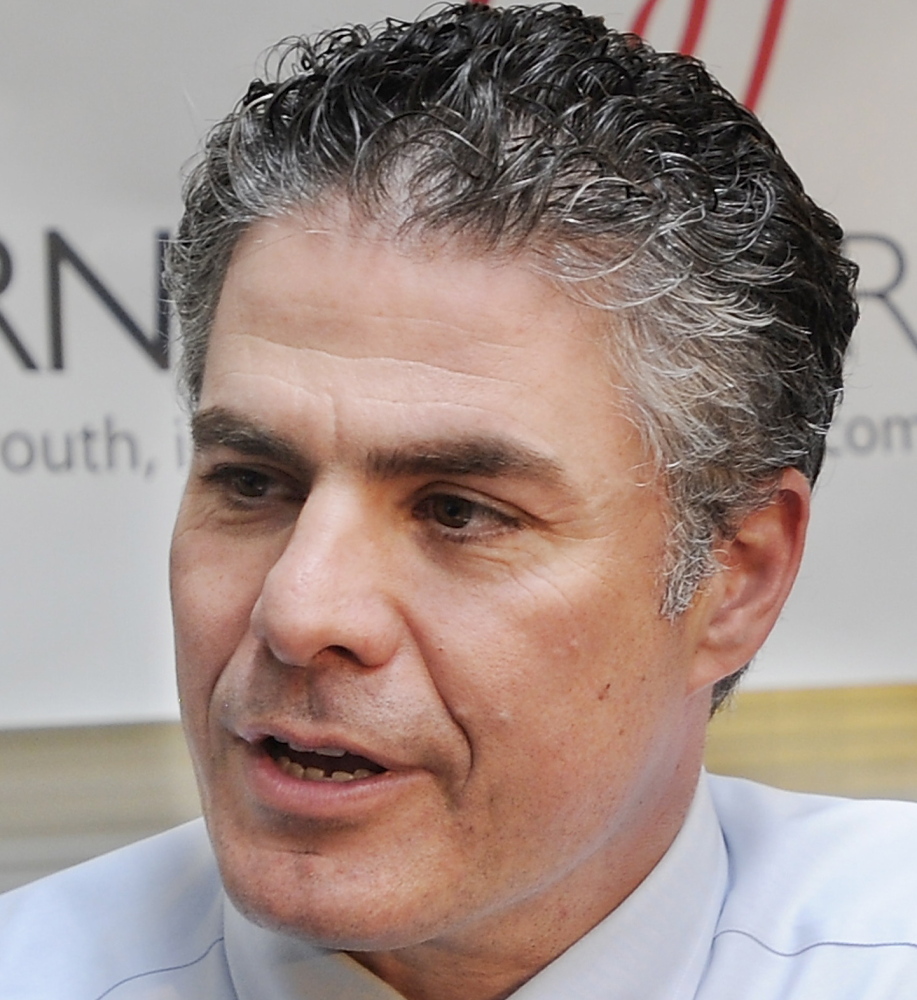Portland Mayor Ethan Strimling wants the City Council to approve additional restrictions on a proposed tax incentive for biotech firm ImmuCell Corp.’s planned factory expansion to ensure that the subsidy benefits city residents.
But ImmuCell’s top executive said the new restrictions, which dictate construction wages, hiring practices, on-the-job training and “green” building standards, are being introduced too late in the game, after the company already has finalized its plans for the project. The city councilor who heads Portland’s Economic Development Committee also said the timing of Strimling’s proposal is unfair to ImmuCell.
The issue is scheduled for a public hearing and vote at Wednesday’s 5 p.m. City Council meeting, although city spokeswoman Jessica Grondin said the vote is expected to be postponed until Sept. 19 to give ImmuCell more time to prepare.
Under the restrictions proposed by Strimling, ImmuCell’s general contractor for the new production facility would be required to present a hiring plan to the city certifying that 25 percent of all work hours on the project would be done by Portland residents. Another 25 percent of work hours would need to be completed by ethnic minority, female, disabled, LGBT, economically disadvantaged, active military or veteran workers.
All workers on the project would have to be paid wages and benefits that meet or exceed the Maine Department of Labor’s “prevailing wage” rates for their professions, according to Strimling’s proposal. In addition, ImmuCell’s general contractor would need to have participated for at least the past three years in a state- or federally approved apprenticeship program for all relevant trades.
A fourth condition, proposed by City Councilor Jon Hinck, would require that the project meet or exceed Portland’s environmental standards for energy-efficient “green” building construction.
During a press briefing Tuesday about the proposed restrictions, Strimling said he wants the ImmuCell expansion to set the standard for all future construction projects involving municipal tax breaks, particularly those involving tax increment financing, or TIF, agreements.
“If we’re going to spend public money, there has to be a public benefit beyond simply a business expanding,” Strimling said.
Leaders of the pro-union Maine State Building and Construction Trades Council also spoke in favor of Strimling’s proposal at the press briefing.
ImmuCell estimates that its expansion will cost $17.5 million. Only $3 million of that is for a new 12,625-square-foot, two-story building, while $14.5 million is equipment and furnishings.
TIMING AND TAX BREAKS
Under a TIF agreement, the TIF recipient’s property is still assessed at full value and taxed at the standard rate. However, its value is split into two categories: the original value, and any new value created after the TIF agreement is signed, such as from new construction.
Tax revenue collected on the property’s original value goes to the city’s general fund, the same as before. But tax revenue collected on any new value created goes into a special TIF account to be used only as specified in the TIF agreement. In most cases, that portion of the revenue goes back to the business that paid the tax.
Matt Marks, CEO of the Associated General Contractors of Maine, said it makes little sense that Portland would put hiring and wage restrictions on the TIF recipient’s building contractor, and not on the TIF recipient itself. After all, he said, the contractor receives no financial benefits from the TIF.
“I guess I don’t get it,” he said. “What does that have to do with construction?”
ImmuCell, a growing biotechnology firm based in Portland, is requesting the TIF to help it finance the construction of a facility to produce a new cure for mastitis in lactating cows called Mast Out, for which it is seeking U.S. Food and Drug Administration approval. The company also is using cash, credit and shares of stock to finance the project, company President and CEO Michael Brigham said.
The 12-year TIF agreement would provide $375,000 in local financing for ImmuCell, an animal health company focused on the dairy and beef industries, to expand its Riverside-area campus, adding an estimated 14 well-paying jobs. The proposal was forwarded to the City Council with a unanimous recommendation from the council’s Economic Development Committee.
Brigham said he appreciates the intent of Strimling’s proposed restrictions, but that they should have been introduced months ago.
“The problem I have with this is the timing,” he said. “We’ve been working on this project for months.”
Brigham said adhering to the proposed restrictions might not cost the company more money, but that it would definitely cause the expansion to be delayed while ImmuCell went back out and rebid the project to find a contractor willing to meet the additional hiring, wage, training and paperwork requirements.
“We’re ready to dig a hole in the ground,” he said. “I don’t know how this got saddled on our shoulders at the last minute.”
Portland City Councilor David Brenerman, chairman of the Economic Development Committee, agreed with Brigham that it would be unfair for the council to add new restrictions after ImmuCell already negotiated terms of the TIF with city staff and received his three-member subcommittee’s unanimous recommendation.
“ImmuCell played by the rules of the council,” he said. “I don’t think it’s fair to change the rules in the middle of the game.”
Brenerman added that it erodes the city’s credibility when it reaches agreements with businesses and then attempts to alter the terms.
For his part, Strimling said his focus is on the larger issue of promoting fair hiring and wage practices in Portland. Strimling said he also wants to level the playing field for contractors that pay higher wages. He hopes the council ultimately will make such requirements standard for all future TIFs.
“If I’m going to hand over a check for almost $400,000, then I want to make sure you hire local people and pay them a livable wage,” he said.
Send questions/comments to the editors.





